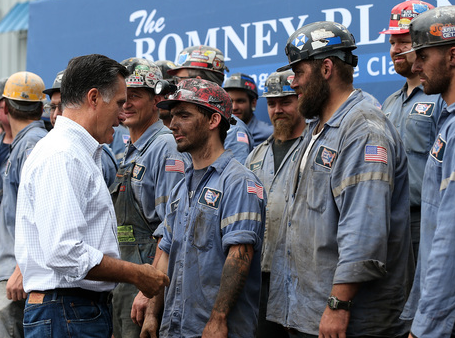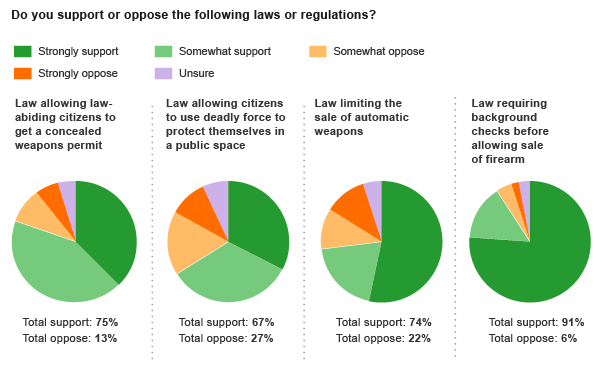|
By Jennifer Connolly
August 17th, 2012 Energy policy is having a surprising moment in the political spotlight in the middle of a presidential campaign that everyone assumed would center on the economy, jobs, healthcare, taxes, and a little more of the economy. Barack Obama and his staff are touting the wind industry as the next great provider of jobs while Mitt Romney is telling anyone who will listen that Obama’s environmental policies are killing jobs in the coal mining industry. The presidential candidates are bringing energy policy to the forefront. But, while the candidates may be using energy policy as their latest way to attack each other and win over swing voters, is Congress likely to implement any drastic changes to energy policy in the near future? Well, as Niels Bohr said, “Prediction is very difficult, especially about the future.” However, we can take a few hints from some newly released scholarly research which suggests that the answer may depend less on who wins the election and more on whether there is a major energy shock (such as a drastic increase in gas prices or a major electricity shortage) to spur politicians to action. Energy policy is highly technical and the costs and consequences of new policies are often rather immediate, or at least evident, within one or two election cycles. Many politicians, in their never ending quest to avoid blame for unpopular or costly policies, don’t really want to touch energy policy with a ten foot pole, so long as there isn’t a major energy shock resulting in continued public outcry for them to “do something.”
0 Comments
By Jennifer Connolly
July 23rd, 2012 In the wake of the movie theater shooting in Aurora, Colorado, I have heard many friends, fellow scholars, and journalists question why gun control policy hasn’t evolved to more tightly regulate the public’s ability to purchase and carry weapons, particularly assault style weapons. In the last week, there has been a lively and at times vitriolic debate over how the U.S. should change (or not change) our gun control policies. Regardless of my personal stance on this debate, I have a feeling that advocates for stricter gun control are fighting an uphill battle. I am not a gun control policy expert, and I don’t seek to promote any specific policy position in this debate. As the Editorial Assistant for the Journal of Public Policy, I regularly review past issues of the journal and just last week I came across an article on credit claiming and blame avoidance that sheds some light on the current state of gun control policy and why it isn’t likely to change anytime soon. At first it might seem that politicians, seeking re-election or election to a higher office, would support the policy position supported by a majority of the public, as that would gain them favor with the electorate. But the case of gun control policy offers a stark counterexample to that theory. Polls released in the last few years give every indication that a majority of the public is in support of some form of stricter gun control, yet policy doesn’t seem to reflect public sentiment. For instance, 63 percent of people favor a ban on high capacity magazines or clips (January 2011 CBS News poll), 86 percent support requiring all gun buyers to pass a criminal background check, no matter where they purchase the weapon or from whom they buy it (American ViewPoint/Momentum Analysis poll), and 69 percent support limiting the number of guns a person could purchase in a given time frame (April 2012 Ipsos/Reuters poll). With a majority of the public in support of stricter gun control, and with horrific tragedies like the movie theater shooting in Aurora gaining national attention, why aren’t politicians jumping at the opportunity to pass policies that would more strictly control the sale of weapons? Kent Weaver offers a compelling explanation in this 1986 JPP article. While I highly recommend reading the full article, the basic idea is that, from a politician’s perspective, it is very difficult to effectively claim credit for preventing shootings by passing stricter gun control policies, but very easy to bear the blame for creating a difficult gun acquisition process. While it is difficult for a senator to credibly claim that he prevented a hypothetical shooting from happening in his state because of stricter national gun control laws, his opponents can very easily blame him for creating bureaucratic red tape that complicates and hinders the ability of law abiding citizens to obtain weapons legally. |
About the Blue PencilIn publishing, blue pencils were traditionally used by editors to mark copy. Scholarly research is extremely relevant to current policy debates, but it is rarely edited with the goal of making it easy to understand for the average news consumer. With this blog, Dr. Connolly takes scholarly articles and condenses, summarizes, and recaps them to make them quick and easy to understand. Archives
September 2012
Categories
All
|



 RSS Feed
RSS Feed
